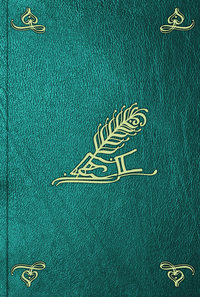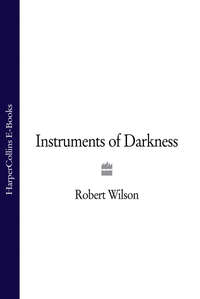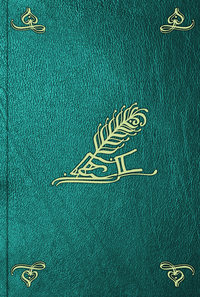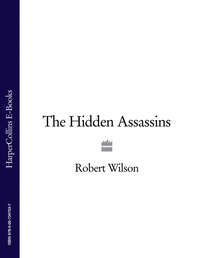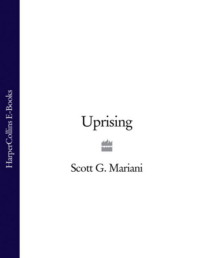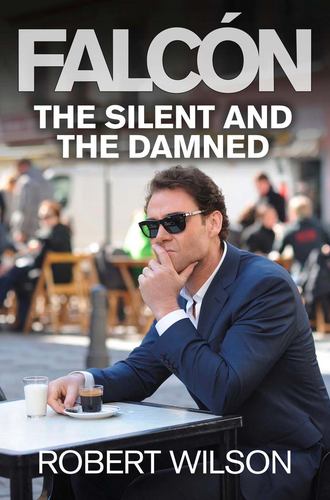
Полная версия
The Silent and the Damned
Maddy was standing close to him. He was aware of her smell, the body under its thin sheath of silk, the exquisite pressure, the flimsiness of the barrier. She hovered, expectant, confident of her ability. Her white throat trembled as she swallowed.
‘We should go back downstairs,’ said Falcón.
‘There was something else I wanted to show you,’ she said, and led him across the corridor to another bedroom, which had a bare tiled floor and more of her photographs on the walls.
His attention was grabbed by a colour shot of a blue pool with a white necklace of tiles in a green lawn with a purple flame of bougainvillea in one corner and a white cushioned lounger in the other. A woman sat on the lounger in a black bathing costume under a red hat.
‘That’s Consuelo Jiménez,’ he said.
‘I didn’t know you knew her,’ said Maddy.
He went to the window. Across the road Consuelo’s garden was visible.
‘I had to get up on the roof for the angle,’ she said.
To his left he could see the Vegas’ entrance and driveway through the trees.
‘Do you know what time Sr Vega came back home last night?’
‘No, but it was rarely before midnight.’
‘You wanted to show me something?’ he said, turning back in to the room.
On the back wall behind the door, framed in black, was a print 75 cm by 50 cm of a man staring down from a bridge, under which it was clear his whole life was flowing. The features of the man did not compute at first. There was too much going on in the face. It was a shock for him to discover that he was looking at himself – a Javier Falcón he’d never seen before.
5
Wednesday, 24th July 2002
Back at the crime scene next door everybody had moved upstairs into the Vegas’ bedroom. Calderón had already signed off the levantamiento del cadáver for Sr Vega. The body was in a bag on a trolley in the hallway, waiting in the air conditioning to be loaded on to the ambulance and taken down to the Instituto Anatómico Forense on Avenida Sánchez Pizjuan.
The crime scene team were now congregated around the bed, looking down at Sra Vega, hands behind backs, solemn as if in prayer. The pillow was off her face and had been put in a plastic bag and leaned against the wall. Her mouth was open. The top lip and teeth were set in a snarl as if she’d left life bitterly. Her lower jaw was off centre.
‘She’d been hit once with the right hand,’ Calderón explained to Falcón. ‘The jaw’s dislocated…Probably knocked her unconscious. The Médico Forense thinks it was done with the flat of the hand, rather than a closed fist.’
‘What was the time of death?’
‘Same time as the husband: three, three thirty. He can’t be more accurate than that.’
‘Sra Jiménez said she used sleeping pills, two a night, to knock herself out. She must have woken up and had to be subdued before being suffocated. Is there any link between this death and Sr Vega’s yet?’
‘Not until I get them back to the Instituto,’ said the Médico Forense.
‘We’re hoping for some sweat or saliva on the upper side of the pillow,’ said Felipe.
‘This strengthens your case for an unknown murderer, Inspector Jefe,’ said Calderón. ‘I can’t see a husband dislocating his wife’s jaw.’
‘Unless, as I said, she woke up, perhaps got out of bed just as Sr Vega came in full of intent. She might have seen something different in him, become hysterical and he felt the need for violence,’ said Falcón. ‘I’m still keeping an open mind on this. Any ghosts in here?’
‘Ghosts?’ asked Calderón.
‘Something that makes a crime scene look “off”, not as it should be,’ said Falcón. ‘We all had the same feeling about Sr Vega’s body in the kitchen. Somebody else had been there.’
‘And here?’
Jorge shrugged.
‘She was murdered,’ said Felipe. ‘Nobody was trying to make this scene look like anything else. Whether it was Sr Vega remains to be seen. All we’ve got is the pillow.’
‘What did the neighbours have to say?’ asked Calderón, moving away from the others in the room.
‘We have some conflicting views,’ said Falcón. ‘Sra Jiménez has known Sr Vega for some time and did not consider him the suicidal type. She also noted the new car and said he was about to go on holiday to San Diego. Sra Krugman, however, showed me these photographs, taken recently, of Sr Vega in private, clearly distressed and possibly unstable. She let me have this contact sheet.’
Calderón looked over the images, frowning.
‘He’s barefoot in his garden in January,’ said Falcón. ‘And there’s another one of him crying down by the river.’
‘What’s she doing, taking these photographs?’ asked Calderón.
‘It’s her work,’ said Falcón. ‘The way she expresses herself.’
‘Taking shots of people’s private distress?’ said Calderón, raising an eyebrow. ‘Is she weird?’
‘She told me that she was interested in the private, inner struggle,’ said Falcón. ‘You know, that voice that Sr Vázquez talked about. The one nobody ever hears.’
‘But what’s she doing with it?’ asked Calderón. ‘Recording the face but not the voice…I mean, what’s the point?’
‘The voice is loud in the head but silent to the outside world,’ said Falcón. ‘She’s interested in the distressed person’s need to be out in the open…amongst his fellow strangers, walking his pain out of himself.’
They exchanged a look, left the room and went into Mario’s bedroom. Calderón gave him back the contact sheet.
‘What’s all that bullshit about?’ said Calderón.
‘I’m telling you what she said.’
‘Is she getting some…vicarious experience from this?’
‘She’s got a photograph of me on her wall,’ said Falcón, still seething. ‘A blow-up of me staring down into the river from the Puente de Isabel II, for God’s sake.’
‘She’s like some paparazzo of the emotions,’ said Calderón, wincing.
‘Photographers are strange people,’ said Falcón, who was one himself. ‘Their currency is perfect moments from real life. They define their idea of perfection to themselves and then pursue it…like prey. If they’re lucky they find an image that intensifies their idea, makes it more real…but in the end they’re capturing ephemera.’
‘Ghosts, internal struggles, captured ephemera…’ said Calderón. ‘This is unusable stuff.’
‘Let’s wait for the autopsy. That should give us something tangible to work with. In the meantime I’d like to find Sergei, the gardener, who was physically the closest person to the crime scene and discovered the body.’
‘There’s another ghost,’ said Calderón.
‘We should search his rooms down at the bottom of the garden.’
Calderón nodded.
‘Maybe I’ll go across and take a look at Sra Krugman’s photographs while you search the gardener’s rooms,’ said Calderón. ‘I want to see these shots full size.’
Falcón tracked the judge with his eyes back to the second crime scene. Calderón exchanged words with the Médico Forense, rolling his mobile in his hand like a bar of soap. He trotted down the stairs in a hurry. Falcón shrugged away the unsettling thought that Calderón seemed oddly self-conscious and keen, which was not part of his usual knowing style.
As he sweated his way down the unshaded lawn Falcón noticed a pile of blackened paper in the grill on the paved barbecue area. The uppermost paper had been crumpled and was thoroughly burned so that it disintegrated at the touch of his pen. Beneath it were pages that had not been so completely consumed by fire, on which there was discernible handwriting.
He called Felipe down to the garden with his forensic kit. He looked it over wearing his custom-made magnified goggles.
‘We’re not going to save much of this,’ he said, ‘if anything.’
‘They look like letters to me,’ said Falcón.
‘I can only make out partial words, but the writing has that rounded look of a female hand. I’ll take a shot of it before we wreck it.’
‘Give me the partial words you can see.’
Felipe called out some words which at least confirmed the language as Spanish and he took a couple of shots with his digital camera. The blackened paper collapsed as he dug in deeper with his pen. He found a partial line ‘en la escuela’ – in the school – but nothing else. At the bottom of the pile he came across paper of a different quality. Felipe lifted some filigree remains from the blackened flakes.
‘This is a modern photograph,’ he said. ‘They’re very flammable. The chemicals blister as the paper underneath burns and all that’s left is this. Older photographs don’t burn so easily. The paper is thicker and higher quality.’
He teased out some paper which was glossy black and curled at the edges but still white in the middle. He turned it over to reveal a black-and-white shot of a girl’s head and shoulders. She was standing in front of a woman whose presence had been reduced to a ringed hand resting on the girl’s clavicle.
‘Can we date it?’
‘This sort of stock hasn’t been used commercially in Spain for years, but it could have been developed privately or come from abroad where they are still using that kind of stuff. So…tricky,’ said Felipe. ‘The girl’s hairstyle looks a bit old-fashioned.’
‘Sixties, seventies?’ asked Falcón.
‘Maybe. She certainly doesn’t look like a girl from the pueblo. And the woman’s hand on her shoulder doesn’t look as if it’s done any manual labour. I’d have said they were well-off foreigners. I’ve got some cousins out in Bolivia who look a bit like this, you know, just not up to date.’
They bagged the piece of photograph, found some shade and cleaned themselves up.
‘You burn old letters and photographs if you’re putting your house in order,’ said Felipe.
‘Or your head,’ said Falcón.
‘Maybe he did kill himself and we’re just imagining things.’
‘Why would you burn this sort of stuff?’ said Falcón. ‘Painful memories. A part of your life you don’t want your wife to find out about…’
‘Or a part of your life you don’t want your son to find out about,’ said Felipe, ‘when you die.’
‘Perhaps it could be dangerous material if it falls into the wrong hands.’
‘Whose hands?’
‘I’m just saying, you burn this sort of thing to get rid of it because it’s either painful, embarrassing or dangerous.’
‘It could just be a picture of his wife as a girl,’ said Felipe. ‘What would that mean?’
‘Have we tracked down Sra Vega’s parents yet?’ asked Falcón. ‘They should really be looking after the boy, rather than Sra Jiménez.’
Felipe told him that Pérez was working on it. They went down to the gardener’s house. The door was not locked. The two rooms were stuffy, airless and stripped of all possessions. The mattress was half off the bed as if he kept something under there, or perhaps just slept on it outside. The only other furniture in the bedroom was an upturned box, used as a bedside table. The kitchen had a gas ring and bottle of butane. There was no fridge and only dried food out on a sideboard.
‘The staff didn’t see much of the Vega luxury,’ said Felipe.
‘Better than living in Tres Mil Viviendas,’ said Falcón. ‘Why run?’
‘Allergic to police,’ said Felipe. ‘These guys get asthmatic when they see 091 on the wall of the phone booth. A dead body…well, you don’t hang around waiting for the disaster to happen, do you?’
‘Or he might have seen something or someone,’ said Falcón. ‘He must have been aware of Sr Vega burning his papers, probably saw him standing out in the garden in his bare feet. Maybe he even saw what happened last night.’
‘I’ll take some prints and run them through the computer,’ said Felipe.
Falcón walked back up to the house, his shirt sticking to his back. He called Pérez on his mobile.
‘Where are you?’ asked Falcón.
‘Now, I’m in the hospital, Inspector Jefe.’
‘I left you searching the garage and the outside of the house.’
‘I did that.’
‘What about all the burnt papers in the barbecue?’
‘They were burnt. I made a note of it.’
‘Did you hurt yourself?’
‘No.’
‘What are you doing in the hospital then?’
‘Sra Jiménez sent the maid over, saying she was having trouble with the boy, Mario. She thought it would be good for him to see a familiar face, get the grandparents over.’
‘Did you speak to Juez Calderón about this?’
‘Yes.’
‘He didn’t mention it to me.’
‘He had other things on his mind.’
‘Like what?’
‘He’s not going to tell me, is he?’ said Pérez. ‘I could see he was preoccupied, that’s all.’
‘Just tell me why you’re in the hospital,’ said Falcón, who had never quite got used to Pérez’s maddening style of working and reporting.
‘I arrived at the apartment of Sr and Sra Cabello, who are the parents of Sra Vega,’ he said. ‘They’re both in their seventies. They let me in. I tell them what’s happened and Sra Cabello collapses. I thought it was shock, but Sr Cabello says she has a weak heart. I call an ambulance and give her first aid. She’s stopped breathing. I have to give her heart massage and mouth to mouth, Inspector Jefe. The ambulance arrives and fortunately has a defibrillator on board. She’s now in intensive care and I’m sitting here with Sr Cabello. I’ve called his other daughter and she’s on her way down from Madrid on the AVE.’
‘Have you spoken to Sra Jiménez?’
‘I don’t have a number for her.’
‘Juez Calderón?’
‘His mobile’s turned off.’
‘Me?’
‘We’re talking now, Inspector Jefe.’
‘All right, good work,’ said Falcón.
Back in the cool of the house Falcón’s insides felt like smouldering wreckage. Everybody was standing around impatiently. Both bodies were bagged and lying on stretchers in the hallway.
‘What are you waiting for?’ asked Falcón.
‘We need Juez Calderón to sign off the levantamiento del cadáver,’ said the Médico Forense. ‘We can’t find him.’
Falcón called Sra Jiménez on his way over to the Krugmans to tell her about Sra Vega’s parents and the imminent arrival of Lucía’s sister from Madrid. Mario had collapsed with exhaustion and was now sleeping. She asked him over for a drink in the heat.
‘I’ve still got things to do,’ he said.
‘I’ll be here all day,’ she said. ‘I’m not going to work.’
Marty Krugman answered the door stretching as if he’d been dozing on the sofa. Falcón asked after the judge. Marty pointed upstairs and dragged himself back to his sofa, barefoot, his jeans hanging off his backside. Falcón followed the sound of voices speaking English. Calderón was quite fluent and had the eagerness of a leaping puppy.
‘Yes, yes,’ he said. ‘I can see that. The sense of deracination is palpable.’
Falcón sighed. Art conversations. He knocked on the door. Maddy tore it open with a sardonic smile on her face. Calderón’s eyes behind her right shoulder were staring, wild with dilated pupils. It put Falcón on the back foot for a moment.
‘Inspector Jefe,’ she said. ‘Juez Calderón and I were having such an interesting conversation, weren’t we?’
Falcón apologized for interrupting but the judge was needed to sign off the second body. Calderón pulled himself together piece by piece, as if he was picking up his clothes in a strange woman’s bedroom.
‘Your mobile was switched off,’ said Falcón.
Maddy raised an eyebrow. Calderón looked around the room to make sure he was leaving nothing incriminating. He gave an uncomfortably protracted goodbye speech whilst holding on to Sra Krugman’s hand, which he kissed at the end. He shambled down the stairs like a schoolboy with a decent report in his satchel and stopped halfway.
‘You’re not coming, Inspector Jefe?’
‘I’ve a question for Sra Krugman.’
Calderón made it clear he would wait.
‘You must go off and do your work, Juez,’ said Maddy, giving him a dismissive little wave.
A herd of emotions ravaged Calderón’s face. Hope, delight, disappointment, longing, jealousy, anger and resignation. They left him trampled. He stumbled down the remaining stairs unable to coordinate his feet.
‘Your question, Inspector Jefe?’ she said, her look as level as the sea’s horizon.
He asked to see the shots of Sr Vega in his garden again. She went into the darkroom and laid the prints out on the table. Falcón pointed to the top corner of the shots.
‘Smoke,’ he said.
‘He was burning stuff,’ she said. ‘He quite often burnt papers down there.’
‘How often?’
‘Since the beginning of the year…quite a lot.’
‘And all your shots are…’
‘From this year,’ she said. ‘Although he didn’t become a regular down at the river until March.’
‘You knew he was disturbed by something,’ said Falcón, annoyed by her now.
‘I told you, it’s not my business,’ she said. ‘And you seem to be confused yourself as to whether it’s suicide or murder.’
He turned without a word and headed for the door.
‘He’s a very sensitive and intelligent man, the Juez,’ she said.
‘He’s a good man,’ said Falcón. ‘And he’s a happy man, too.’
‘They’re a rarity once they get over thirty,’ said Maddy.
‘Why do you say that?’
‘I see more men down at the river than I do women.’
‘Women have a talent for remaining connected to the world,’ said Falcón. ‘They find it easier to talk.’
‘There’s no secret to it,’ said Maddy. ‘We just get on with it. Men, like Marty for instance, get sidelined by trying to answer unanswerable questions. They allow things to complicate in their minds.’
Falcón nodded and set off down the stairs. She stood at the top, folded her arms across her chest and leaned against the wall.
‘So, why is the Juez so happy?’
‘He’s getting married later this year,’ said Falcón, without turning.
‘Do you know her?’ she asked. ‘Is she nice?’
‘Yes,’ said Falcón, and he turned to the door.
‘Lighten up’ she said in English. ‘Hasta luego, Inspector Jefe.’
6
Wednesday, 24th July 2002
Falcón understood those words perfectly and he strode back to the Vegas’ house in a fury that was only broken by the sight of the maid walking off towards Avenida de Kansas City. He caught up with her and asked her whether she’d bought any drain cleaner recently. She hadn’t, ever. He asked her when was the last time she’d cleaned the kitchen floor. Sra Vega, who was obsessed with the idea that Mario would catch germs from a dirty floor, had insisted that it was done three times a day. Mario had already gone across to Consuelo Jiménez’s house before she cleaned the floor for the last time yesterday evening.
The ambulance containing the two bodies pulled away as he arrived back at the Vegas’ house. The front door was open. Calderón was smoking in the hallway. Felipe and Jorge nodded to him as they left with their forensic kits and evidence bags. Falcón closed the door behind them against the heat.
‘What did you ask her?’ said Calderón, pushing himself away from the wall.
‘I saw from the barbecue that Vega had been burning papers. I wanted to see if he was burning anything in the shots she had taken of him,’ said Falcón. ‘He was.’
‘Is that all?’ said Calderón, both accusing and mocking.
Falcón’s anger came back to him.
‘Did you get anywhere with her, Esteban?’
‘What do you mean?’
‘You were over there for half an hour with your mobile switched off. I assumed you were talking about something with an important bearing on the investigation.’
Calderón dragged hard on his cigarette, drew in the smoke with a rush of air.
‘Did she say what we talked about?’
‘I heard you talking about her photographs as I came up the stairs,’ said Falcón.
‘They’re very good,’ said Calderón, nodding gravely. ‘She’s a very talented woman.’
‘You’re the one who called her a “paparazzo of the emotions”.’
‘That was before she talked to me about her work,’ he said, flicking his cigarette fingers at Falcón. ‘It’s the thinking behind the photographs that makes them what they are.’
‘So they’re not Hola! with feelings?’ said Falcón.
‘Very good, Javier. ‘I’ll remember that one,’ said Calderón. ‘Anything else?’
‘We’ll talk after the autopsy reports have come out,’ said Falcón. I’ll meet Sra Vega’s sister off the AVE and take her to Sra Jiménez later this evening.’
Calderón nodded without knowing what Falcón was talking about.
‘I’ll talk to Sr Ortega now…he’s the other neighbour,’ said Falcón, unable to resist the sarcasm.
‘I know who Sr Ortega is,’ said Calderón.
Falcón went to the front door. By the time he turned back Calderón was already lost in labyrinthine thoughts.
‘I meant what I said this morning, Esteban.’
‘What was that?’
‘I think you and Inés will be very happy together,’ said Falcón. ‘You’re very well suited.’
‘You’re right,’ he said. ‘We are. Thanks.’
‘You’d better come with me,’ said Falcón. ‘I’m going to lock up now.’
They left the house and parted ways in the drive. Falcón shut the electric gates with a remote he’d picked up from the kitchen. The entrance to Ortega’s house was to the left of the Vegas’ driveway and covered by a large creeper. He watched Calderón from its shade. The man hovered by his car and appeared to be checking his mobile for messages. He headed off in the direction of the Krugmans’ house, stopped, paced about and gnawed on his thumbnail. Falcón shook his head, rang Ortega’s bell and introduced himself over the intercom. Calderón threw his hands up and went back to his car.
‘That’s the way, Esteban,’ said Falcón to himself. ‘Don’t even think about it.’
The smell of raw sewage had already reached Falcón’s nostrils as he stood by the gate. Ortega buzzed him in to a stink gross enough to make him gag. Large bluebottles cruised the air as threatening as heavy bombers. Brown stains crept up the walls of the corner of the house where a large crack had appeared in the façade. The air seethed with the busy richness of decay. Ortega appeared from around the side of the house which overlooked the lawn.
‘I don’t use the front door,’ said Ortega, whose hand grip was bone-cracking. ‘As you can tell, I have a problem with that side of the house.’
Pablo Ortega’s whole body expressed itself in that handshake. He was compact, unyielding and electric. His hair was long, thick and completely white and fell below the neck of his collarless shirt. His moustache was equally impressive, but had yellowed from smoking. Two creases ran from the entradas of his hairline to his eyebrows and had the effect of pulling Falcón into his dark brown eyes.
‘You’ve only just moved in, haven’t you?’ asked Falcón.
‘Nine months ago…and six weeks later, this shit happens. The house used to have two rooms built over a cesspit, which holds the sewage for the four houses you can see around us. Then the previous owners built another two rooms on top of them and, with the extra weight, six fucking weeks after they sold me the house, the roof of the cesspit cracked, the wall subsided and now I’ve got the shit of four houses bubbling up through the floor.’
‘Expensive.’
‘I have to take down that side of the house, repair the cesspit, strengthen it so it can take the additional weight and then rebuild,’ said Ortega. ‘My brother sent somebody round who’s told me I’m looking at a bill for twenty million, or whatever the fuck that is in euros.’
‘Insurance?’
‘I’m an artist. I didn’t get round to signing the vital piece of paper until it was too late.’
‘Bad luck.’
‘I’m an expert in that particular commodity,’ he said. ‘As I know you are. We’ve met before.’
‘We have?’
‘I came to the house on Calle Bailén. You were seventeen or eighteen.’




